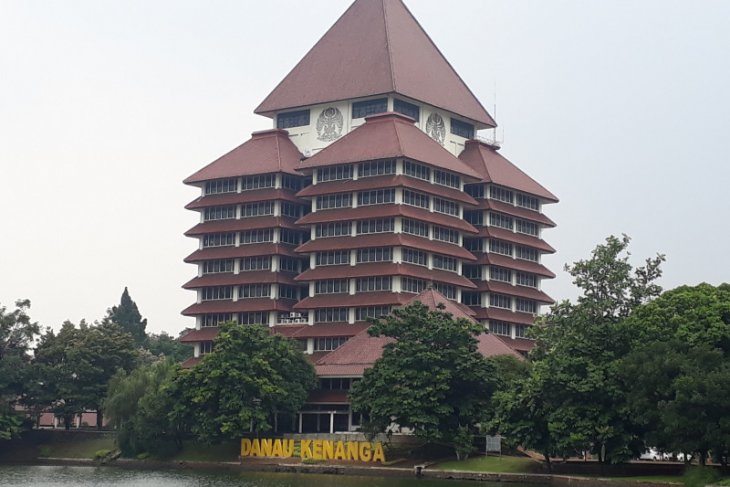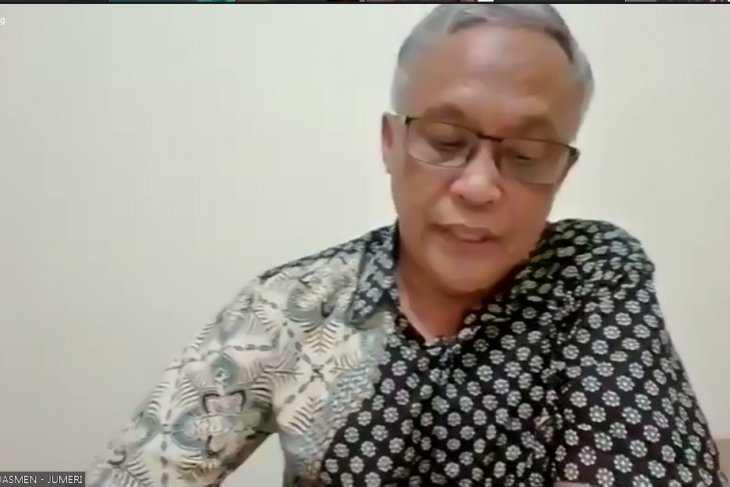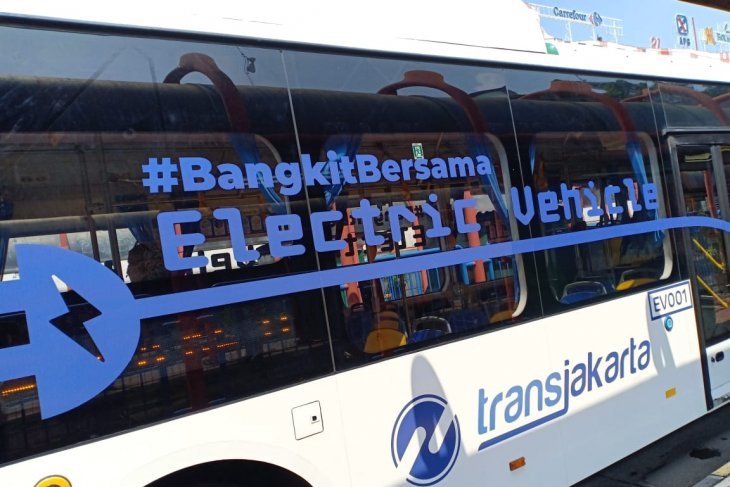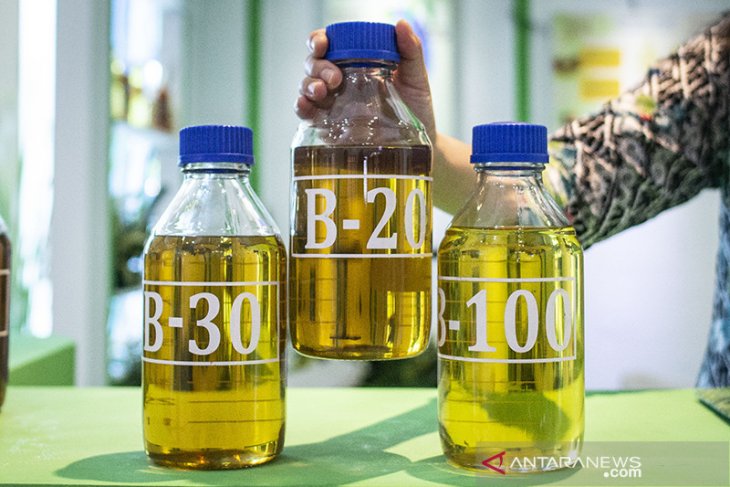Live Streaming
Program Highlight
Company Profile

Ani Hasanah
September

The UI building in Depok, West Java. (feru lantara)
The Times Higher Education (THE) has released its World University Rankings (WUR) 2021, which features the University of Indonesia (UI) in the 801-1000 ranking bracket and acknowledges it as the best university in Indonesia.
In a statement issued on Saturday, UI Rector Prof. Ari Kuncoro said this is a great achievement and shows that Indonesia, and UI in particular, are increasingly being recognized by the global community and that UI remains the best university in Indonesia.
Amid the ongoing COVID-19 pandemic, UI remains committed to finding solutions for the COVID-19 problem through innovation, research, and community service activities, Kuncoro added.
"The contribution of the teaching staff, researchers, education staff, and students, as well as collaboration with the industry, the government, and the community, has enabled UI to achieve progress and have an impact on the country," he remarked.
THE has released the World University Rankings on its official website (https://www.timeshighereducation.com/world-university-rankings).
UI is the only university from Indonesia that has been included in the 801-1000 bracket in the rankings. A total of 1,500 universities from 93 countries across the world have been ranked by the THE WUR 2021.
In the WUR 2021, the state-run university has scored 25.1 - 30.1, chalking up 37.6 points in Teaching Performance, 20.7 in Research, 15.2 in Scientific Paper Citation Performance, 84.5 in Synergy with Industry, and 51.3 in Coverage of Internationalization.
The most prominent UI achievement has been its synergy with the industrial sector. THE has used this indicator to assess the university's ability to support the industry through breakthroughs, innovations, inventions, and ideas based on the needs of the industry and society.
According to UI, it is focusing on being a think-tank and solving problems in society. With a focus on three research clusters, namely health, social humanities, and technology science, UI is committed to producing solutions that are beneficial to industry and society.
Established in 1848, the University of Indonesia (UI) is a modern, comprehensive, open-minded, multicultural, and green campus, which provides not just quality education, but also a vibrant and enjoyable learning environment with all facilities needed for an optimal learning experience.
UI is now internationally recognized as one of South East Asia's top universities on account of its consistent and outstanding performance in the areas of teaching, learning, research, and community engagement. UI has made important contributions in the advancement of the nation's prosperity.
THE (Times Higher Education) has been providing performance data on universities for students and their families, university academics, university leaders, governments, and industry since 2004.
The THE World University Ranking is the definitive list of top universities globally and covered more than 1,250 institutions across 86 countries in 2019. It is the only global university league table to judge research-intensive universities across each one of their core missions: teaching (learning environment); research (volume, income, and reputation); international outlook (staff, students, and research); citations (research influence); industry income (knowledge transfer). (ANTARA)
September
 Director general of Early Childhood Education, Elementary Education and Secondary Education of the Education and Culture Ministry, Jumeri STP MSi. (ANTARA/Indriani)
Director general of Early Childhood Education, Elementary Education and Secondary Education of the Education and Culture Ministry, Jumeri STP MSi. (ANTARA/Indriani)
Indonesia's illiteracy rate fell to 1.78 percent of the total population in 2019 from 1.93 percent the year before, an Education and Culture Ministry official said.
"The illiteracy rate stood at 1.93 percent, or 3.29 million people, in 2018 and fell to 1.78 percent, or 3.076 million, in 2019," director general of Early Childhood Education, Elementary Education, and Secondary Education at the Education and Culture Ministry, Jumeri STP MSi, said in Jakarta on Friday.
The illiteracy rate has continued to fall thanks to the implementation of various innovative strategies to fulfill people's learning needs, he remarked.
Non-formal education is as important as formal education, he said.
"Illiteracy must be eradicated since it hinders citizens' access to information, health, and jobs," he added.
Indonesia has been considered successful in eradicating illiteracy, as is evident by its being awarded the King Sejong Literacy Prize by the United Nations Educational, Scientific, and Cultural Organization (UNESCO) in 2012, he pointed out.
Since the end of 2018, Indonesia has been chosen on the Steering Committee for Global Alliance for Literacy (GAL UNESCO), in recognition of its success in rooting out illiteracy, he added.
GAL is an alliance of 29 countries, comprising 20 countries with a literacy rate of below 50 percent (including Afghanistan and several African countries) and E-9 Countries, or nine most populated nations in the world with a literacy rate of above 70 percent (including India and Indonesia).
According to the national welfare statistics issued by the Central Statistics Agency (BPS) in 2019, the country's literacy rate for people aged between 15 and 59 has reached 98.22 percent.
Several efforts have been made to curb the illiteracy rate in the country through updating illiteracy data, eradication strategy, partnership networking, and literacy education innovations. (ANTARA)
September

An electric bus of Transjakarta. ANTARA/Ahmad Wijaya
Indonesian Coordinating Maritime Affairs and Investment Minister Luhut Binsar Panjaitan believes now is the time to harness momentum to develop electric vehicles in Indonesia though firstly partnering with other nations advanced in the non-fossil fuel industry.
"I am among the most insistent to develop national electric vehicles. This is since we do not want to continue to be a market for imported vehicles, let alone, electric vehicle technology is relatively easier to develop, and Indonesia has the world's largest resources of nickel as raw material for making batteries," he stated while addressing a webinar on investments in the production of electric vehicles and supporting infrastructure here on Saturday.
The government has issued several regulations to serve as legal umbrellas for the development of the electric vehicle industry, including Presidential Decree Number 55 of 2019 on Acceleration of the Battery Electric Vehicle Program for Road Transportation.
To develop electric vehicles, Indonesia is keen to partner with several countries, including China, whose industrial technology is already quite advanced and almost dominates the global electric vehicle market.
Based on the planned partnership, Indonesia is optimistic about a transfer of technology in the future, so that Indonesian experts can later manufacture electric vehicles, he remarked.
"To this end, Indonesia has sent several experts from various leading universities to China to study about electric vehicles. We will learn about its success and the mistakes committed," he added.
Special Advisor for Policy on Innovation and Industrial Competitiveness of the Coordinating Ministry for Maritime Affairs and Investment Satryo Soemantri remarked that Indonesia is deemed ready to become a producer of electric vehicles.
The country has huge reserves of nickel and cobalt, which are raw materials to produce lithium batteries as the main component of electric vehicles.
"Of course, we do not want to remain a vehicle importer all the time. Hence, we have to be able to produce electric vehicles. From a technological perspective, Indonesia can actually master it," Soemantri stated.
The government has also encouraged private companies to import electric vehicles to immediately build an electric vehicle factory in Indonesia by cooperating with foreign firms.
At the initial stage, Indonesia will strive to develop battery-based electric motorized vehicles and industry producing lithium batteries as the main component of electric vehicles.
"Development of vehicles and batteries must run in parallel and simultaneously," he stated. (ANTARA)
September

An officer shows sample of B-20, B-30 and B-100 biodiesel fuels in Jakarta on February 26, 2019 ANTARA FOTO/Aprillio Akbar/aww/aa.
The utilization of biodiesel blended fuels reached 4.36 million kiloliters (kl) until mid-2020, constituting almost 68 percent of last year's total consumption, the Energy and Mineral Resources Ministry stated.
"The (COVID-19) pandemic has slightly slowed down the utilization of biodiesel owing to declining consumption in the transportation sector. However, the government is upbeat about the use of FAME (fatty acid methyl ester) until the end of this year surpassing last year's consumption due to the implementation of B-30 (a 30-percent biodiesel mix)," Chief of the Communication and Public Information Service Bureau of the Energy and Mineral Resources Ministry Agung Pribadi stated in Jakarta on Friday.
Biodiesel consumption has risen significantly since 2016 by nearly 50 percent to reach 3.75 million kl in 2018 as compared to 2.57 million kl in 2017. The government will mandate the use of biodiesel blended fuels until consumption is clocked at 6.39 million kl.
The use of biodiesel mix has not only reduced the country's dependence on imported fuels but it has also had a larger multiplier effect on palm oil growers.
In fact, several parties, including Traction Energy Asia research manager Ricky Amukti, has supported and commended the use of biodiesel mix.
"Looking ahead, with this mandatory (use of biodiesel mix), we are optimistic that self-financing farmers can directly contribute to the biodiesel supply chain. In addition, we are upbeat about policies capable of encouraging the contribution," Amukti noted recently.
Furthermore, Amukti lauded the government for its efforts to support palm oil growers through mandating the use of biodiesel.
"For the umpteenth time, the president has always said biodiesel will be able to absorb palm oil from farmers. He last reiterated the statement while delivering his speech at the plenary session on August 14. May there be a great leap to support the farmers' welfare," he added.(ANTARA)

